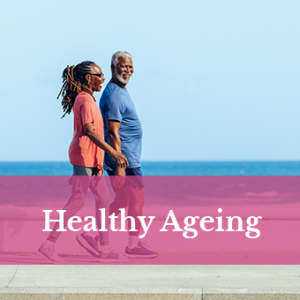
Healthy Ageing Through Technology: Lessons from the co-creation and cultural adaptation of the Keep On Keep Up (KOKU) Digital Strength and Balance programme.
Presenter(s):
Bibhusha Karki; Charlotte Eost-Telling; Jaheeda Gangannagaripali; Emma Stanmore, The University of Manchester, United Kingdom
Abstract
Purpose: To share insights from the co-creation, feasibility and community engagement processes involved in culturally adapting the Keep On Keep Up (KOKU) digital strength and balance programme for older South Asian communities in the UK.
Background: Falls and fragility fractures are a major global public health concern, placing significant pressure on healthcare systems—costing an estimated £4.4 billion annually to the UK NHS and $50 billion in the US (CDC, 2018). Hip fractures are the most serious injury among older adults, with 30% mortality and 50% losing mobility within a year (WHO, 2007). Older adults of South Asian heritage in the UK experience lower levels of physical activity, increasing their fall risk (Raleigh, 2023). The KOKU digital programme combines OTAGO/FaME-based exercises (Skelton et al., 2005) with interactive health literacy games on safety, nutrition, hydration, and more, using behaviour change techniques to support ongoing physical activity and prevent falls. This study aimed to explore the feasibility and acceptability of implementing a culturally tailored version of KOKU with older South Asian adults.
Methods: A mixed method feasibility study was conducted with 33 older South Asian adults (65+) from Indian, Pakistani, Bangladeshi, Nepalese and Bhutanese backgrounds. Patient and public involvement and engagement with 16 older Pakistani participants informed study design. Community engagement with 37 grassroots organisations and 11 deaf Bangladeshi individuals was conducted to raise awareness of KOKU and the importance of physical activity in healthy ageing. Quantitative and qualitative data were collected to assess digital habits, fall risk, quality of life, and experience of using KOKU. The study also examined the feasibility of conducting research with older South Asian adults—who are often underrepresented in ageing and digital health research.
Results: Findings highlight the acceptability and perceived usefulness of KOKU and feasibility of both research process and KOKU intervention within South Asian communities. The study explored participants’ fall risk, digital habits, and quality of life, offering valuable lessons for developing inclusive digital health interventions. There were zero dropouts, Insights also highlight specific strategies to improve recruitment, accessibility, and trust-building when engaging older South Asian communities in research and digital health initiatives.
Conclusion: Co-production approaches can enhance digital intervention and research design for older and marginalised populations. This study provides valuable lessons for designing digital tools that support healthy ageing in marginalised populations. It provides strategies for inclusive research, community engagement and digital accessibility.
Funding source:
This research was supported by the Dunhill Medical Trust (PDM2202), NIHR ARC-Greater Manchester (NIHR20017405156), NIHR Policy Research Unit in Healthy Ageing (NIHR206119), and the University of Manchester. Views are those of the authors, not necessarily those of the NIHR or DHSC.
Bio(s):
Bibhusha Karki is a public health and international development professional dedicated to promoting equity in healthy ageing. She holds a Master’s in Development Practice with a minor in Public Policy from the University of Minnesota, USA, and a BSc in International Development and Economics from Minnesota State University Moorhead.
With experience spanning Nepal, the USA, Senegal, and the UK, Bibhusha has worked with non-profits, local health departments, and global agencies including USAID. Her work has focused on maternal and child health, health systems strengthening, capacity building, and programme evaluation. She is skilled in mixed-methods research and has contributed to projects on health equity, paediatric asthma care, and vaccine access.
Currently a PhD researcher at the University of Manchester, she is co-developing a culturally tailored digital health intervention to promote physical activity and fall prevention among older South Asian adults in the UK. Her work integrates digital inclusion, co-production, and behavioural science to reduce inequalities in later life.
Bibhusha is committed to advancing the goals of the UN Decade of Healthy Ageing through evidence-based, community-driven approaches. She aims to influence global policy and innovation to build inclusive, age-friendly systems that support longer, healthier lives for all.
